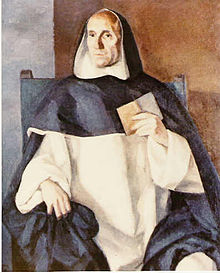
(1486 - 1546)
Scholastic era theologian, philosopher, and professor,
in Renaissance Spain.
Vitoria's
series of three lectures, delivered in 1548 at the University of
Salamanca and titled "On the Indians Lately Discovered," was the
first serious challenge to Crusading-era papal authority over
'savages peoples' encountered in distant lands. Vitoria
argued that the sovereignty of native people existed as a condition
that preceded their discovery by agents of European monarchs.
In order to substantiate such a radical departure from status quo
convention, Vitoria developed three dramatically new ideas, and
each of these was eventually grafted onto the enlightenment-era
legal doctrines codified by Grotius and Vattel. Most
important, Vitoria asserted that Indians possess natural legal
rights as free and rational peoples, and because they were free and
rational, their sovereignty was inherent in the natural-law
conditions that existed prior to their 'discovery' by European
explorers. (Click here for more on the man who laid the legal
groundwork for Indian law in the Americas
Related People
Related Events
Related Flashpoints